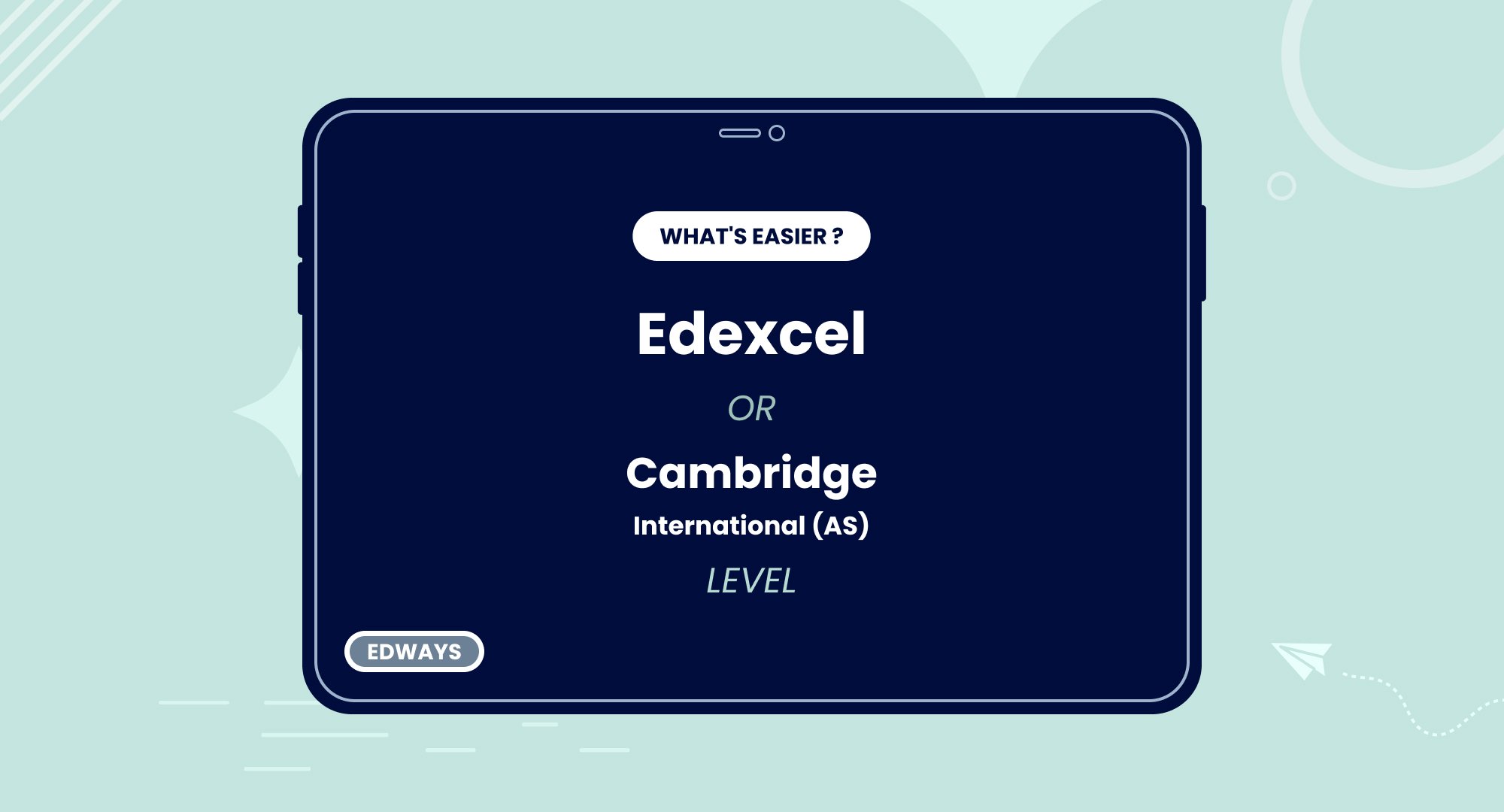Edexcel vs. Cambridge International (AS) Level: Which One is Easier?
Introduction
The choice between Edexcel and Cambridge International Examinations (CIE) for Advanced Subsidiary (AS) Level studies can be a challenging decision for students and parents alike. Both examination boards have their unique features, advantages, and challenges. In this blog post, we'll compare Edexcel and Cambridge International AS Level, examine their differences, and provide insights to help you determine which one may be more suitable for your academic needs.
1. Background and Reputation
Edexcel and Cambridge International are two of the most respected and widely recognized examination boards globally, offering qualifications that are accepted by universities and employers worldwide. Edexcel, owned by Pearson, is the largest awarding organization in the UK, while Cambridge International, a division of Cambridge Assessment, is well-known for its international presence and global recognition.
2. Curriculum and Subject Offerings
Both Edexcel and Cambridge International offer a broad range of subjects at AS Level, catering to various interests and career aspirations. However, the range of subjects and the curriculum structure may differ slightly between the two examination boards.
Edexcel AS Level subjects are typically more modular, allowing students to select specific units or modules within a subject to tailor their learning to their interests and strengths. This approach can provide flexibility and personalization, enabling students to focus on specific areas that interest them.
Cambridge International AS Level subjects follow a linear structure, with a more fixed curriculum and a cohesive learning experience. This approach can provide students with a comprehensive understanding of the subject and a more balanced skill set.
3. Assessment Style and Grading
Edexcel AS Level assessments typically involve a combination of exams, coursework, and practical assessments, depending on the subject. The modular nature of the curriculum means that students can be assessed on individual units or modules, allowing them to improve their grades by retaking specific units if necessary.
Cambridge International AS Level assessments usually involve written exams and, in some cases, coursework and practical assessments. The linear structure of the curriculum means that students are assessed on their overall understanding of the subject, rather than on individual units or modules.
Grading systems also differ between the two examination boards. Edexcel uses the UMS (Uniform Mark Scale) to calculate final grades, while Cambridge International uses a percentage uniform mark (PUM) system.
4. Difficulty Level and Ease of Preparation
The perception of difficulty level for Edexcel and Cambridge International AS Level varies among students, and there is no definitive answer to which is easier. Some students may find Edexcel's modular approach more manageable, as it allows them to focus on specific areas of the subject and provides opportunities to improve their grades by retaking individual units.
Others may prefer the linear structure of Cambridge International AS Level, as it offers a more comprehensive and cohesive learning experience, allowing them to develop a deeper understanding of the subject.
Ultimately, the ease of preparation will depend on the individual student's learning style, preferences, and academic strengths. It's crucial to research the curriculum, assessment style, and subject offerings of both examination boards thoroughly to determine which one aligns best with your academic goals and interests.
5. Resources and Support
Both Edexcel and Cambridge International provide extensive resources and support for students and teachers, including textbooks, past exam papers, mark schemes, and examiner reports. Additionally, both examination boards offer professional development and training opportunities for teachers to enhance their understanding of the curriculum and assessment requirements.
When choosing between Edexcel and Cambridge International AS Level, consider the availability and quality of resources for your chosen subjects, as well as the support network available through your school, teachers, and fellow students.
Conclusion
Deciding between Edexcel and Cambridge International AS Level ultimately comes down to individual preferences and academic goals. Both examination boards offer high-quality curricula and are recognized worldwide, but they differ in their approach to subject offerings, assessment styles, and overall structure.
If you prefer a more modular and flexible curriculum that allows you to focus on specific areas within a subject, Edexcel AS Level might be the right choice for you. On the other hand, if you appreciate a more comprehensive and cohesive learning experience with a linear curriculum structure, Cambridge International AS Level may be more suitable.
To make an informed decision, thoroughly research the curriculum, assessment style, and subject offerings of both examination boards. Consult your teachers, parents, and fellow students for their insights and experiences. Ultimately, the best choice will depend on your individual learning style, academic strengths, and personal preferences.

